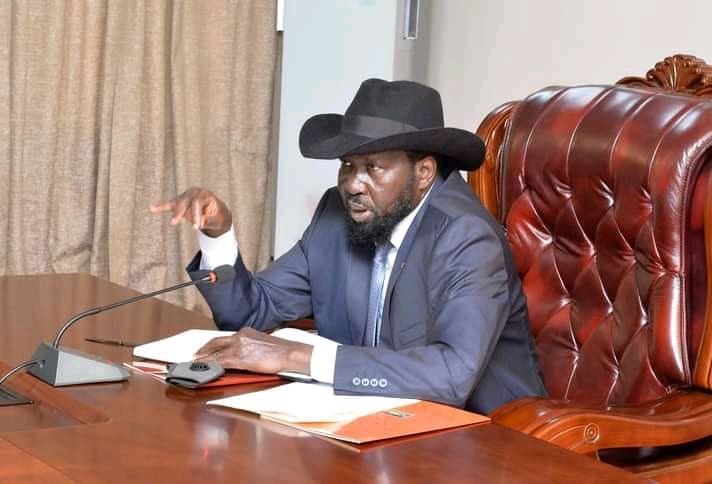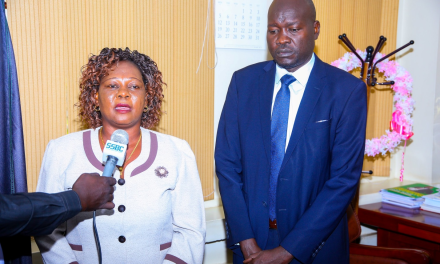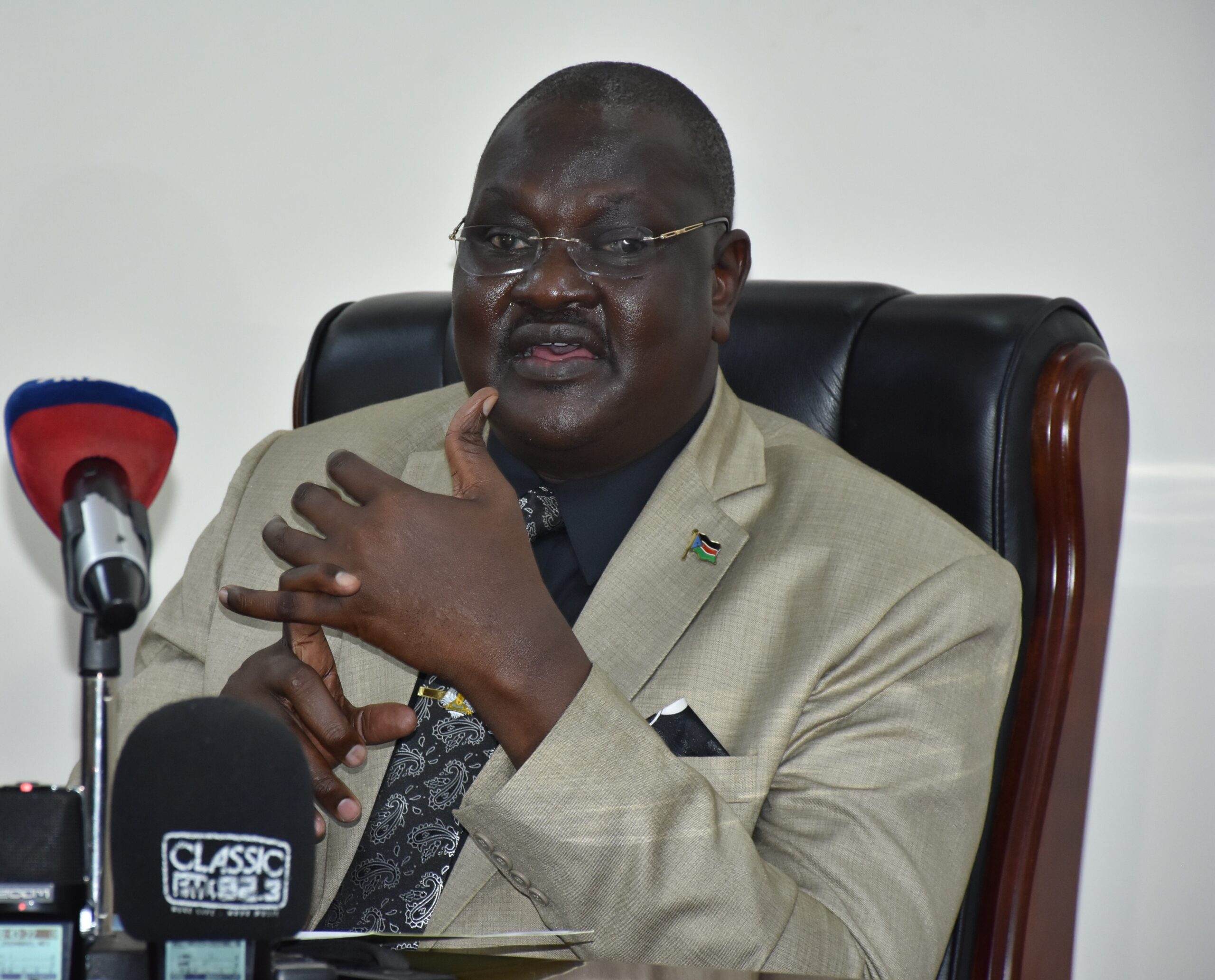
As South Sudan Marks 10, President Kiir Vows ‘No War Again’

By Okech Francis
South Sudan’s President Salva Kiir has pledged never to engage in war in the new nation, choosing the country’s 10th independence anniversary to release foes from jail.
The independence anniversary is not being celebrated in the country as a result of the covid-19 pandemic and Kiir took to a televised public address to assure his country of sustainable peace.
“To mark this important occasion, I am granting full pardon to 15 prisoners who were serving jail in various prisons in South Sudan,” Kiir said in Juba on Friday.
“On my part, I assure you that I will not return you back to war again.”
Two years after independence in 2011, the country slid into a political crisis pitting the current first vice president Riek Machar in a bitter war against Kiir, with heavy wars that raged for six years leaving 400,000 people dead, displaced four million others and slashed crude oil, leading to economic chaos.
The two, and other political leaders have formed a government in Juba implementing a three year deal that is billed to return the country to the path of democracy with elections at the end.
Across the country, citizens and groups including nongovernmental organizations see nothing to be proud of yet.
Agencies say 8.3 million people including women, children and the elderly are facing unprecedented multi-sector humanitarian needs.
Of this, over 7.2 million are facing the worst ever hunger crisis in the country, with some on the brink of famine, Save the Children said in a statement on July 09.
The organization warned the situation “will most likely deteriorate in coming months due to ongoing violence, high food prices, climatic shocks, and barriers to humanitarian access, unless urgent national and global action is taken.”
It urged Kiir’s administration to curb communal violence and fast track the implementation of the peace deal, to address some of the root causes of the hunger crisis.
According to Daniel Sullivan, the Senior Advocate for Human Rights at the Refugees International, the challenges for South Sudan are simply grave, from stalled peace implementation to risk of famine.
“A revitalized peace agreement has stemmed the worst of atrocities, but its slow implementation has allowed unacceptable continuation of atrocities and a food insecurity crisis,” Sullivan said.
“The world’s attention and support are needed now as much as ever to ensure the next ten years of the world’s newest nation do not repeat the tragedy of the past decade.”
The Catholic Pope Francis and leaders of the Churches of England and of Scotland, Justin Welby and Jim Wallace, noted in a statement on Friday the sad predicament of South Sudan.
The people “continue to live in fear and uncertainty, and lack confidence” that their nation can indeed deliver the ‘justice, liberty and prosperity’ celebrated in their national anthem, the top religious leaders said.
“Increasing inter-communal violence, the threat of the peace process unraveling, and dire humanitarian conditions across large swaths of South Sudan continue to plague development,” they said while lamenting a slow progress on implementing the country’s peace agreement.
“Much more needs to be done in South Sudan to shape a nation that reflects God’s kingdom, in which the dignity of all is respected and all are reconciled,” they said.
Such efforts “may require personal sacrifice from you as leaders – Christ’s own example of leadership shows this powerfully – and today we wish you to know that we stand alongside you as you look to the future and seek to discern afresh how best to serve all the people of South Sudan.”
In Juba, the South Sudan Council of Churches described the ten years as a “wasted decade.”
Kiir however expressed optimism all will be fine with the deal.
His hopes hinge on a ceasefire that has held since September 2018 when the pact was signed, noting that the country will soon receive its professional army, derived from all different groups in South Sudan.
“The ceasefire is holding because of the new spirits by the parties to the peace agreement,” he said.
“Fifty-three thousand forces from the entire security sector are now ready for graduation. We are committed to graduating them as a matter of urgency for security purposes,” Kiir said.
“Let us all work together to recover the lost decade and put our country back to the path of development in this new decade.”



































